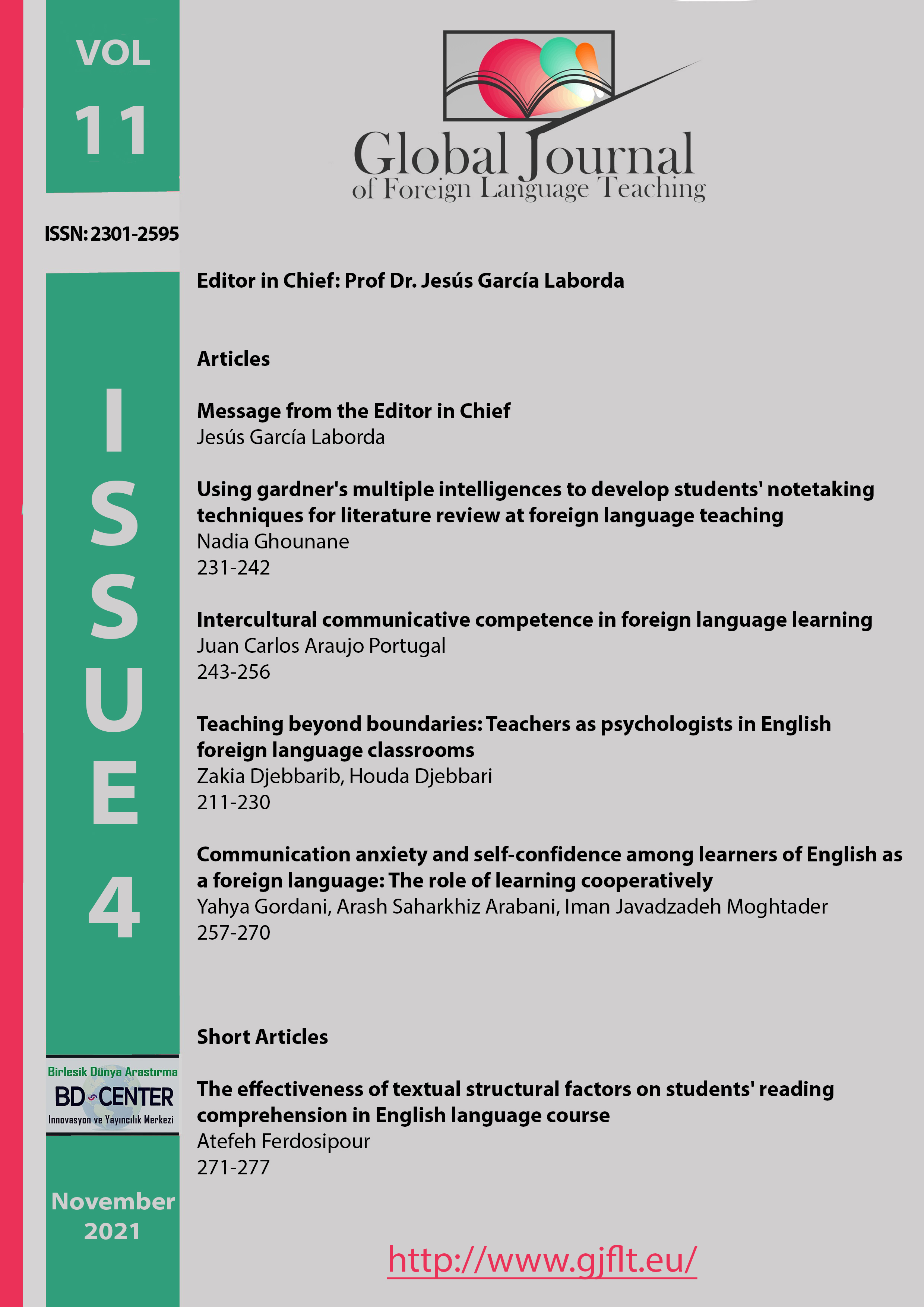Communication anxiety and self-confidence among learners of English as a foreign language: The role of learning cooperatively
Main Article Content
Abstract
The present study investigated the impact of learning a foreign language cooperatively on boosting self-confidence and alleviating communication anxiety among learners of English as a foreign language (EFL). One hundred and thirty-five intermediate EFL male and female language learners, homogenized via a language proficiency test, were randomly assigned into two groups of 65 (the experimental group) and 70 (the control group). Participants were then administered two questionnaires to measure levels of oral communication apprehension and self-confidence before the study. On the final session of each class, the questionnaires were re-administered as post-tests and the participants were interviewed. The findings obtained from the statistical analyses as well as the qualitative analysis of the interviews demonstrated that incorporating the principles of learning cooperatively in EFL speaking classes can significantly affect the level of self-confidence and lower the communication apprehension levels. Findings are discussed and implications for EFL classrooms are elaborated upon.
Keywords: Anxiety; communication; English; foreign language; learning cooperatively; self-confidence.
Downloads
Article Details

This work is licensed under a Creative Commons Attribution 4.0 International License.
Authors who publish with this journal agree to the following terms:- Authors retain copyright and grant the journal right of first publication with the work simultaneously licensed under a Creative Commons Attribution License that allows others to share the work with an acknowledgement of the work's authorship and initial publication in this journal.
- Authors are able to enter into separate, additional contractual arrangements for the non-exclusive distribution of the journal's published version of the work (e.g., post it to an institutional repository or publish it in a book), with an acknowledgement of its initial publication in this journal.
- Authors are permitted and encouraged to post their work online (e.g., in institutional repositories or on their website) prior to and during the submission process, as it can lead to productive exchanges, as well as earlier and greater citation of published work (SeeThe Effect of Open Access).
